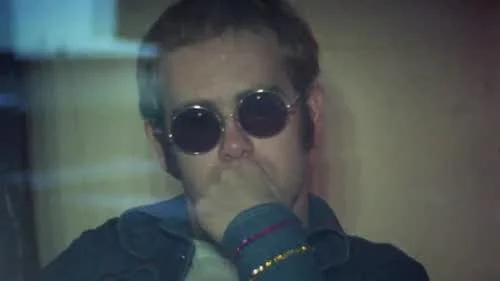Elton John: Never Too Late
Written by Andreas Babiolakis
I don’t need to explain who Elton John is, seeing as he is one of the most successful and revered rock and pop stars of all time. His compositions with long time songwriting partner Bernie Taupin have served as the soundtracks to many lifetimes and eras. Everyone has their personal favourites. For album, I’ll be a little on the nose with saying Goodbye Yellow Brick Road is John’s best (but it’s true). The topic of the best John song is a bit trickier, as there are definitely many, but I will go with — again, an obvious choice — “Your Song,” but the reason proves the point I made before: the song is associated with the day I proposed to my now fiancée. John’s music has always fit many occasions, moods, ideologies, or time periods. His work speaks for itself. Was a documentary to detail his career necessary? I’d argue absolutely not, especially when the biopic Rocketman does a good enough job detailing his entire life.
However, that’s not quite what the documentary Elton John: Never Too Late does. Instead, it prepares us for John’s final North American performance before he retires for good (at Dodgers Stadium: a landmark venue for the musician who once dominated it in style back in 1975). While this documentary vows to cover much of the Farewell Yellow Brick Road tour (appropriately named, I’d say), it instead heads all the way back to the start of John’s career to present us with a contrast between past and present. We get sneak peaks at John’s journal to find out some personal details about the legend, including his fondness for the family he never thought he’d have and his concerns with aging. We get the typical documentary treatment, including an animated passage to recreate ideas, home footage to prove statements, and even a slice of that final American performance so we can see John go out with a bang. That sounds all well and good, right?
Elton John: Never Too Late is a decent love letter to a musical titan, but not a thorough enough analysis that will provide much insight into what made him great.
That isn’t really the case. With all of the above considered, you have to note that this film is only one hundred minutes, with credits. That really isn’t enough time to get into the details considering that the documentary aims to cover all of John’s life up to the then-present. As a result, we don’t learn anything new about John that we wouldn’t have already known (assuming that the only people watching it are already fans of his work), and we don’t truly feel like we are a part of the farewell tour experience. Instead, Never Too Late is a surface-level celebration that exists just because it could, and, honestly, someone like John deserves a far stronger study. This almost feels like an advertisement for a final show that already happened. Having said all of that, Never Too Late is harmless and made with love, so you may not feel like you have met Elton John, but you might feel like you at least crossed paths with him. Even though they will already likely know what is being shown, I’d recommend Elton John: Never Too Late to the biggest aficionados of his music just because it’ll be an extra way to cherish the titan. Otherwise, there are many other avenues you can explore to really get to know who this figure is; when Wikipedia feels like a more substantial resource, you know your documentary is missing something.
Andreas Babiolakis has a Masters degree in Film and Photography Preservation and Collections Management from Ryerson University, as well as a Bachelors degree in Cinema Studies from York University. His favourite times of year are the Criterion Collection flash sales and the annual Toronto International Film Festival.






